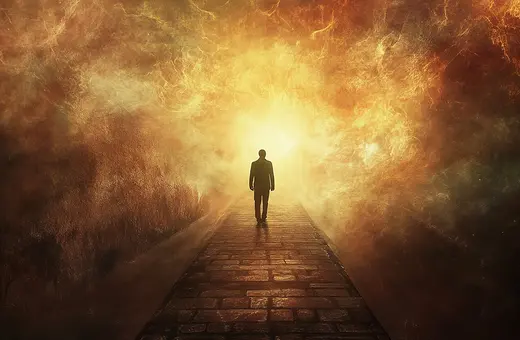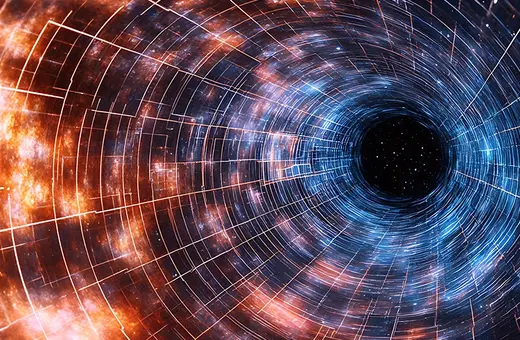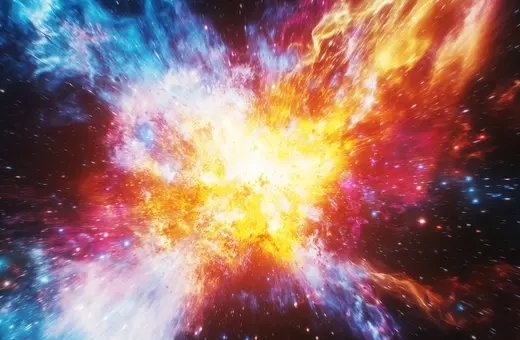The four-dimensional block universe, supported by Einstein’s theory of relativity, is a world where past, present and future are equally real. Philosophers of time have debated about whether this makes a difference to issues like freedom, responsibility, and death. Arguing against the hopeless fatalism often associated with this theory, Nikk Effingham examines the philosophical details of the block universe and whether it truly affects our human experience.
Taffy Brodesser-Akner’s Fleishman is in Trouble is now a Hulu-filmed drama series. In it, Toby’s nine-year old son asks him about the block universe. ‘It’s a theory,’ Toby says. ‘It’s this idea that, like, all of life is happening at the same time. Like all points of existence are, I don’t know, occurring simultaneously.’ Weird as that theory may sound, it is now mainstream thinking for physicists and philosophers. You might believe, as the characters of Fleishman tacitly do, that the block universe is a meaningful and important theory—that, if it were true, we should see ourselves, our lives, and the lives of others very differently because of it.
 SUGGESTED READING
Einstein and why the block universe is a mistake
By Dean Buonomano
SUGGESTED READING
Einstein and why the block universe is a mistake
By Dean Buonomano
What is the block universe?
Toby is hesitant in pinning down the details of the block universe—and rightly so, since it’s a complicated view to get your head around. The underlying idea is that time is like space. When it comes to space, we readily believe that places that aren’t ‘here’ are nevertheless real. Whilst I am in the United Kingdom, that doesn’t mean that France or Mongolia or Pluto don’t also exist. So, if time is like space, then times that aren’t ‘now’ exist. Dinosaurs roaming the Earth and the Battle of Hastings might not be currently happening but, if the universe is a block, that doesn’t mean they aren’t real. Given the block universe theory, those things exist, although they are removed from us, albeit in time instead of space. The same goes for the future: every future event that will ever come to pass is as real and existent as anything you see around you right now. My not knowing what will come to happen is basically the same as me not knowing what Julius Caesar’s shoe size was—it is a failure of knowledge, not of a failure of reality to have fixed the facts.
You might think that this sounds nuts. But this idea that the past and future are as real as the present has been around for a long time. Moreover, it became academic orthodoxy around the time of Albert Einstein, whose theory of relativity is often read as saying that the universe is a block.
Fatalism: Is the future as unchangeable as the past?
It’s not hard to see why we might believe that the block universe has radical ramifications on how we live. Imagine it is true that I will get a divorce in 2033. Given the block universe, it’s true—right now! —that I will get a divorce in ten years’ time. So how can I avoid it? If it’s true—right now! —that I’ll get a divorce, how can I change that fact? (Equally, if I won’t get a divorce then I don’t have the power to get one, which is just as unintuitive and strange!)





















Join the conversation